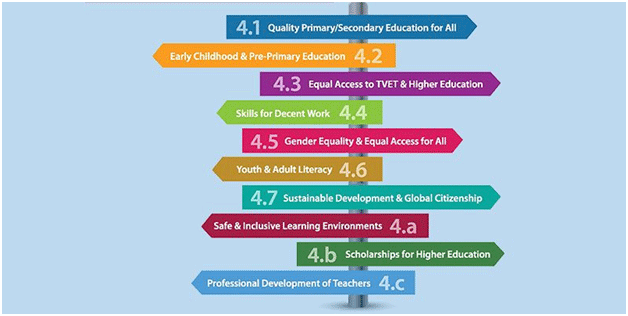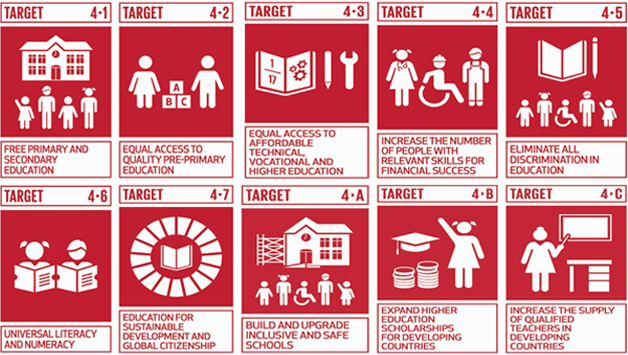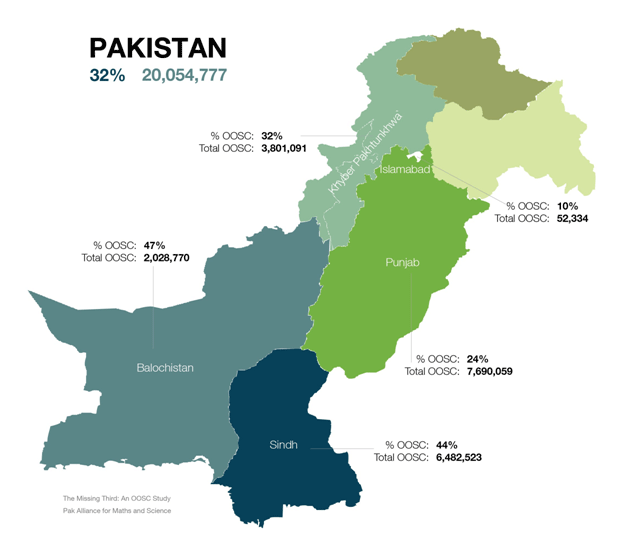|
"Education is the most powerful weapon which you can use to change the world", said Nelson Mandela. It is necessary to devise systems that deliver the kind of education necessary for making the world a better place. Every child has the fundamental right to learn. In the contemporary world, there are layers of structures in every society that strive to achieve this fundamental right. Indeed, education is a powerful driver of development and one of the strongest instruments for reducing poverty, improving health, ensuring gender equality, attaining peace, and maintaining stability among communities across the world.
Pakistan is facing a serious challenge to ensure all children, particularly the most disadvantaged, attend, stay and learn in school. While enrollment and retention rates are improving, progress has been slow to improve education indicators in Pakistan.
Challenges
Pakistan’s education sector faces critical challenges, which are believed to have been deepened by COVID-19 and the 2022 Floods. These catastrophes have only added to the world’s second-highest population of out-of-school children, which was at 20.3 million before them.
Currently, Pakistan has the world’s second-highest number of out-of-school children (OOSC). An estimated 22.8 million children aged 5-16 are out-of-school.
Understanding the different characteristics of out-of-school children will help, and here are some of them:
 |
|
- The majority are girls. Before the pandemic, 37 percent of girls and 27 percent of boys aged 5–16 were not in school.
|
 |
|
They are more likely to live in rural areas. About 35 percent—or 15 million-- rural children aged 5 to 16 were out of school, compared with 20 percent –or 4.4 million--of urban children. This gap has remained constant over the past two decades. |
 |
|
They tend to be older. More children are out after primary school. During the 2018/19 school year, 40 percent of secondary school-age children were out of school (40 compared to 25 percent of middle school-age children and 23 percent of primary school–age children. |
 |
|
The number and share of out-of-school children drastically differs across provinces. About 53 percent of all out-of-school children live in Punjab and 23 percent in Sindh. That is almost 14 million. However, Balochistan and Sindh show the country's highest provincial rates of out-of-school children. |
Education and Sustainable Development Goal (SDG) 4:
In September 2015, United Nations under the umbrella of Sustainable Development Goals (SDGs) which adopted Goal number 4 of 'Quality Education'. It is designed to achieve quality, free and equal education for children around the globe by 2030. The targets of this goal are:


Facts and Figures:
Out of all children in Pakistan between the ages of five to 16 years, 32 per cent, i.e. one third, are out of school. This amounts to an estimated total of over 20 million.

Priorities of National Education Policy Framework 2018 of Pakistan:
Priority 1: Decrease out-of-school children increase school completion
Priority 2: Uniformity in education standards
Priority 3: Improve the quality of education
Priority 4: Enhance access to and relevance of skills training
Education and Constitution of Pakistan:
Article 25-A: "The State shall provide free and compulsory education to all children of the age of five to sixteen years in such manner as may be determined by law."
Article 37-A: Promote, with special care, the educational and economic interests of backward classes or areas
Article 37-B: Remove illiteracy and provide free and compulsory secondary education within minimum possible period
Article-C: Make technical and professional education generally available and higher education equally accessible to all on the basis of merit
SPARC works tirelessly to contribute its maximum part in educating children. SPARC act as an umbrella organization where it provides series of programs to increase literacy rate especially in vulnerable communities. In addition, SPARC initiates short- and long-term projects to provide quality education and support new initiatives that enhance education delivery in its centers and the country. To ameliorate the skills sets of young children, SPARC provides a range of trainings, vocational skills development programs. SPARC organizes and leads discussions on various topics and issues that are faced by Pakistan’s education sector at the time. It organizes policy discussions among key stakeholders, brings various organizations under the same roof, and creates and consistent and effective awareness campaigns in addressing the challenges of education. SPARC will continue its efforts and aim at creating maximum positive impacts on improving the education system for the children of Pakistan.
|
